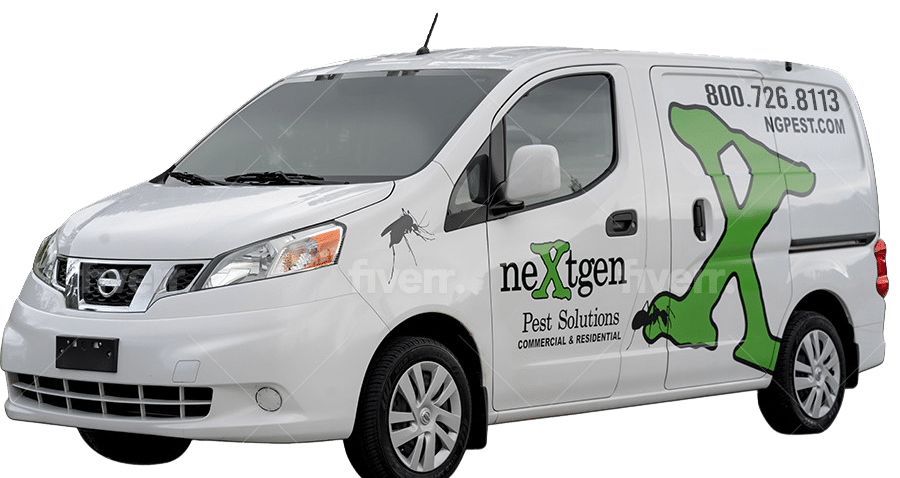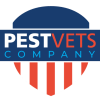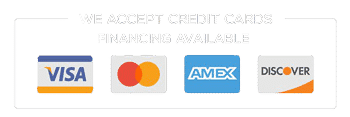Our phone provider is experiencing a temporary outage. Please use the chat option below for a faster response.
More results...
Our phone provider is experiencing a temporary outage. Please use the chat option below for a faster response.
More results...
We Guarantee the Highest Quality Termite Control for you and your Property!

24/7 Same Day Availability
We have same day availability and offer 24 hour emergency service pest control.

Affordable Costs
Our treatments cost less than most of our competitors, with better quality.

Licensed, Bonded, & Insured
Our certified pest control team guarantees your safety and security.

100% Family & Pet Safe
Our pest control options are 100% safe for pets and children.
ProtectionandRelief
Quality Termite Control Professionals Serving belle glade, Florida.
You can request same day termite control service and get a free quote in advance. Call Us Today to setup service!
Local & Trusted
We are proud to live and work in the local community.
Same Day Service
Our technicians are fast, and can come the same day you call.

Every year termites cause approximately 5 billion dollars in damage to homes and businesses in the United States. To make matters worse, termite damage is not covered by most homeowners’ insurance policies. Termites thrive in the hot and humid summers and mild winters of Belle Glade.
Make sure to act today and don’t ignore a termite infestation. We offer free inspections and we would love the chance to serve you in protecting one of your biggest assets.
Belle Glade, FL
Contact Us Today
Serving Zip Codes:
33430
Address
2771 Vista Pkwy Unit F8, West Palm Beach, FL 33411
Hours
We Are Available
24 Hours a Day
If you are having multiple problems, we also provide these other pest control services:
Roaches
Ants
Termites
Bed Bugs
There are many kinds of termites, each with different characteristics and treatments. To gain the upper hand with any species of termite, you must understand their behaviors.
In addition to the common Eastern Native Subterranean Termites, invasive species of Subterranean Termites are quickly taking over large areas in South Florida. University of Florida Entomologists believe that by the year 2040 over half of the structures in Florida will be at risk of infestation by Subterranean Termites.
Subterranean Termites live and nest in the ground; they travel through mud tubes between their nest and the wood that they are feeding upon. Sometimes their nest is as far as 300 feet away from your home. One Subterranean Termite colony may even be feeding upon more than one structure at a time!
Termites are considered eusocial creatures, meaning they cooperatively care for their young, overlapping generations live together, and there is a clear division of labor. Termites are divided into workers, soldiers, and reproductive.
Nextgen Pest Solutions uses our knowledge of termite biology and behavior to eliminate the colony from your home. Since Subterranean Termites live and nest in the ground, the treatment must access the soil.
There are two main options for Subterranean Termites. Both of these treatments rely on the fact that the worker termites groom and feed the others to ensure colony destruction.
Drywood Termites do not live in the soil, but rather the entire colony nests in the wood that they are actively consuming. Drywood Termite colonies are smaller than Subterranean Termite colonies, but it is possible to have more than one colony in your home.
Typical nesting sites are under wooden shingles, eaves, or siding. They are also often found in window and door frames and furniture, particularly antiques. Usually, the first sign of Drywood Termites are thousands of winged swarmers flying towards a light in your home in the evening time. Upon closer inspection you may find frass, or termite fecal matter piled up near the infestation site. Drywood Termites drill very small holes near the surface of the wood and kick their fecal matter out of their nests. This frass resembles coffee grounds or sawdust.
A successful Drywood Termite treatment must access the termites in their gallery. Depending on the specific set of circumstances, you can choose to fumigate your home or perform spot treatments in the location of the termite infestation.
Fumigation requires extensive preparation by you the homeowner before a large heavy-duty tent is placed over your entire home. Your home is then filled with a gas called Vikane. This gas can penetrate the wood in your home or business and will kill anything in the wood.
An alternative to fumigation is called a “Spot Treatment” or “No-Tent Termite Treatment”. Your Nextgen Termite Professional will access the Drywood Termite gallery and inject termite product directly into their nest. With this guaranteed treatment, there is no need to leave your home for three to four days, it is less expensive, and much less prep for you!
With the different kinds of termites, the different treatment options, and the different behaviors and characteristics of the termites, it can become overwhelming. Call today, and we will send out an experienced termite professional to assess your situation and educate you on the options.
Our goal is to prevent expensive structural damage to your home and evict the termites from Belle Glade! Belle Glade has a unique and diverse history. The Belle Glade Chamber of Commerce has an excellent overview of its history and local events.
Common Questions Our Customers Ask
This can range from $200 to thousands of dollars. An average home treatment costs about $800 to $1200. To narrow down the cost here are some questions you will need to know the answers to: Are the termites in a single piece of furniture or the entire home? Are they subterranean or drywood termites? Does the entire home need treated? Start with a professional inspection to help narrow down the treatment type and cost.
Termites get into your home by either tunneling up from the ground beneath or by swarming. Swarming typically happens once a year for most large termite colonies. The colony produces special termites with wings called swarmers (also known as alates or reproductive). These swarmers are males and females. They fly out of the colony and look for a place to start a new colony. Most will die and not be successful. However, if they successfully pair up and find a suitable place for a new colony in your home then you may have a problem.
No termites do not affect people. However, sometimes termites are a sign of hidden moisture issues that can also be conducive to health issues such as mold.
Termites can be positively identified from samples of live/dead termites, termite frass (termite poop), or by damage to the wood itself. A professional inspection is the best way to identify which type of termites (if any) that you have and they best treatment method.
Most termites are ¼” to ½” long.
This varies by species, but common termite species are black, brown, tan, or reddish-brown.
Tent fumigation prices are based on the cubic feet of volume under the tent. Prices typically range from $1000 for a small home to well over $10,000 for a larger structure such as a condominium or commercial building. This is much more expensive to other termite control methods such as termite baiting or “No-Tent” treatments. The key is to have a professional inspection to properly identify the type of termite and the extent of the infestation.
Subterranean termites typically live in the ground, tunnel up into your home to feed, and then return to the ground. The most common treatments are liquid treatments or termite bait station outside along the perimeter of your home. Active areas inside your home may also be spot-treated to speed up control.
Drywood termites workers do not leave the wood they are eating and often travel no more than a foot or so. The key for drywood termite control is to get a treatment to them because they will not move to the soil to contact a treatment like subterranean termites do. Our preferred treatments for drywood termites are foam injection directly into the termite tunnels or fumigation. We suggest having a professional inspection to properly identify which kind of termites you have in your walls.
Flying termites (also called swarmers or alates) are the life stage of termites that fly out of a colony once a year to establish a new colony elsewhere. Most will die before this happens leaving you with gross piles of dead termites on window sills and around lights. Any bug spray, or even a vacuum, will kill these flying termites, but this is a sign of a bigger problem . . . . . a large colony hiding in the walls. A professional inspection and treatment is needed to ensure the entire termite colony eliminated and not just the flying termites.
First, this depends on the type of termite. There are two types of termites (subterranean and drywood). Subterranean termites are highly mobile and typically move in and out of your home. Baits or liquid treatments around the exterior of your home often eliminate all the subterranean termites inside the home also. However, we prefer to also treat all active areas just to be safe. For drywood termites, it is a little more difficult. Drywood termites workers do not leave the wood they are eating and often travel no more than a foot or so. The key for drywood termite control is to get a treatment to them because they will not move to the soil to contact a treatment like subterranean termites do. Our preferred treatments for drywood termites are foam injection into the termite tunnels or fumigation. We suggest having a professional inspection to properly identify which kind of termites you have in your walls.
There are numerous treatment options for treating termites. There are both natural and chemical options. Natural options may be limited depending on what kind of termites you have (drywood or subterranean) and where the termites are located (easily accessible vs hidden in a wall). We do recommend a professional inspection to identify the type of termites you have and help choose the best option for your home. Here is an overview of some natural options.
We Treat These Pests & Many More
Read What Our Local Pest Control
Customers Are Saying



Our Top Deals
You work hard for your money and we want you to keep it! Use these money saving coupons when you sign up for our pest control services!
Get a Free Pest Control Quote Now!
Our main Georgia location is: 100 Prospect Pl Suite B, Alpharetta, GA 30005. Phone: 470-375-0496
Our professional pest control operators are dedicated to taking care of your pest control, exterminator, and wildlife removal needs in the greater Atlanta, Georgia area and the surrounding towns and cities of: Cumming, Sandy Springs, Roswell, Johns Creek, Alpharetta, Marietta, Brookhaven, Smyrna, Dunwoody, Gainesville, Milton, Lawrenceville, Duluth, Chamblee, Decatur, Suwanee, Norcross, Winder, Buford, Flowery Branch, Oakwood, Woodstock East Point and Dawsonville.
In addition, we provide pest control services in Martin and Palm Beach Counties in Florida including the towns and cities of Boca Raton, Belle Glade, Boynton Beach, Delray Beach, Greenacres, Hypoluxo, Juno Beach, Jupiter, Lantana, Lake Park, Lake Worth, Loxahatchee, Palm Beach Gardens, Riviera Beach, Royal Palm Beach, Tequesta, West Palm Beach, Wellington, and Fort Lauderdale.
We also serve the West Coast of Florida including Pinellas, Hillsborough, and Pasco County, Florida including the towns and cities of Tampa, Clearwater, St. Petersburg, Largo, Palm Harbor, Pinellas Park, Dunedin, East Lake, Tarpon Springs, Seminole, Safety Harbor, Oldsmar, Gulfport, Bardmoor, and South Pasadena.
We also serve the Birmingham, Alabama area of Jefferson County.
If you don’t see your location please contact us as we service many more areas in Alabama, Florida, and Georgia.



2024 Nextgen Pest Solutions All rights reserved
Login | Knowledge Base | Privacy Policy | Terms | Coronavirus | Site Map | Accessibility
*Bed bug and wildlife coupons on the website apply only to new customers signing up for full home treatment over $850. Pest control coupons apply to recurring service only.